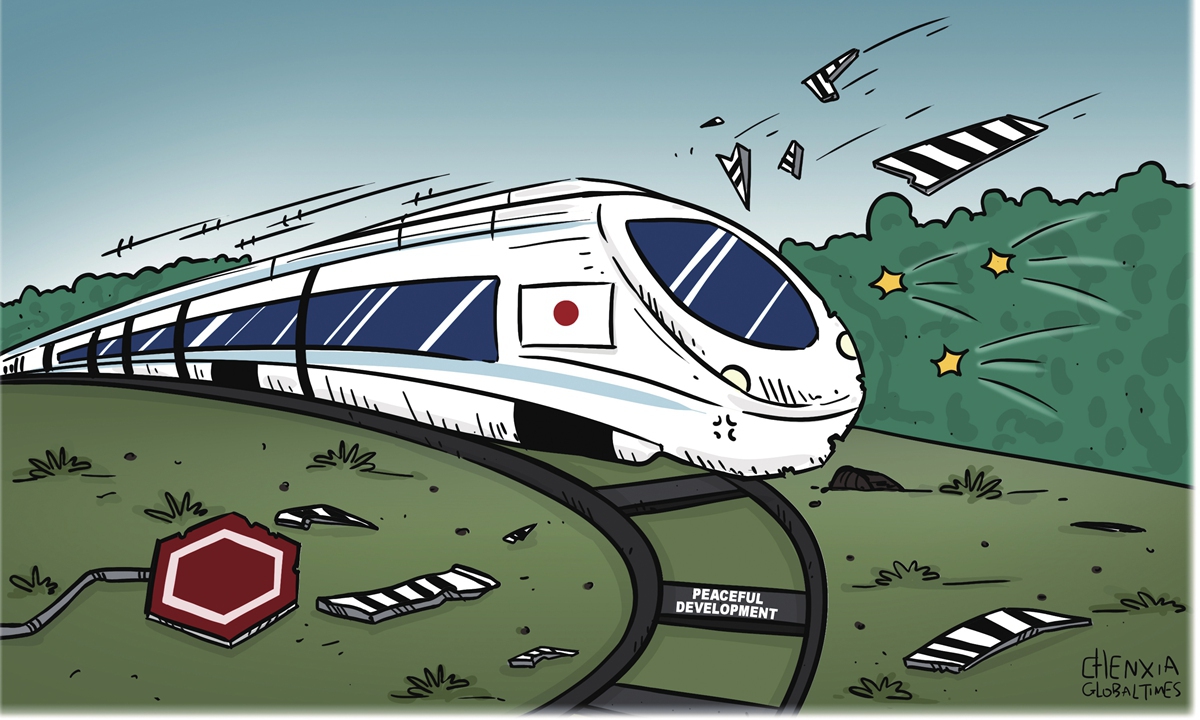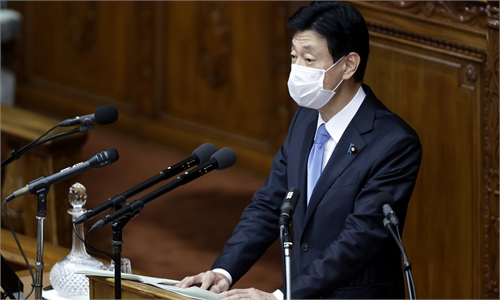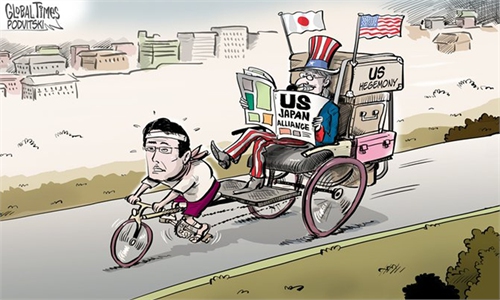
Illustration: Chen Xia/Global Times
Philippine Transportation Secretary Jaime Bautista said the country is considering partnering with Japan to revive major railway projects, and the government held talks last week with officials from the Japan International Cooperation Agency, the South China Morning Post reported on Wednesday.The development, to certain extent, is a reflection of Japan's apparent increase of economic exchanges with the Philippines in recent days, of which some appear to imply upsetting signs for military cooperation.
Last month, Japan's vice minister for defense renewed Japan's promise to help the Philippines modernize its military, according to some media reports. During a phone call on Wednesday, Japanese Foreign Minister Yoshimasa Hayashi expressed the interest in identifying a "new scope of cooperation" to attain the Philippines' upper middle-income status, and said that Japan would increase engagements with the Marcos administration toward the realization of a free and open Indo-Pacific, the Philippine News Agency reported.
Japan's willingness to offer financing or other assistance for the development of the Philippines is welcome, which, however, is not a favor, but atonement for its past atrocity that brought great suffering to the people of Asia.
It should be noted that there is no lack of cooperation mechanisms between Japan and Southeast Asian countries, with the 10+3 cooperation mechanism, involving Southeast Asian nations, plus China, Japan and South Korea, remaining the main channel for cooperation in the region. Then why did Japan specifically reaffirm a free and open Indo-Pacific when discussing economic cooperation with the Philippines?
It is no secret that Japan first announced the vision for a so-called free and open Indo-Pacific in 2016, which is believed to be the inspiration for the US' Indo-Pacific strategy that targets China. And since the US announced the Indo-Pacific strategy, Japan has played up the so-called "China threat theory," under the banner of maintaining regional security in line with the US' Indo-Pacific strategy.
If anything, Japan's recent acceleration in strengthening cooperation with Southeast Asian countries is not because it wants to help regional countries, but because of its intention of aiding the US containment campaign against China and taking every opportunity to stir up tension, with the real purpose of seeking a fundamental change in its military policy.
However, Japan's plot to rope in the Philippines and others will not succeed. Because Southeast Asian countries value regional peace and stability, and they know clearly win-win cooperation always prevails over confrontation.
China has always viewed ASEAN as a high priority, and has developed friendly and cooperative relations with ASEAN promoting common development in the spirit of mutual benefit. China-ASEAN cooperation is focused on maintaining regional stability, which does not seek zero-sum games or push for bloc confrontation.
But not all countries see cooperation with the region in the same way as China does. Therefore, regional countries need to be wary of external forces using cooperation to lure them into strategic traps aimed at containing China, especially at a time when the US is exerting pressure to force the region to take sides.
In particular, the deepening of China-Philippines cooperation is of great significance to the peaceful development of the region. In recent years, China and the Philippines have strengthened economic and trade ties, with practical cooperation achieved in infrastructure, agriculture and trade. This has not only benefited the peoples of the two countries, but also contributed to the peace and stability of the region. In the future, China will continue to expand the scope of cooperation with the Philippines on the basis of mutual benefit so as to enhance mutual trust and mutual interests.



